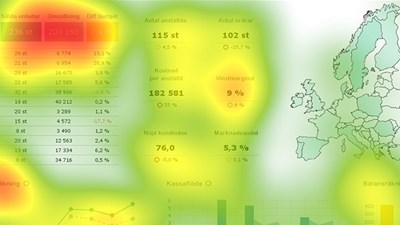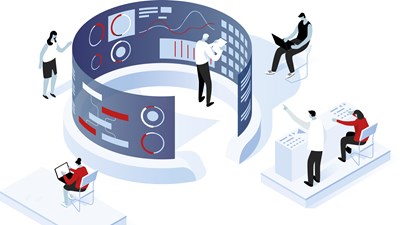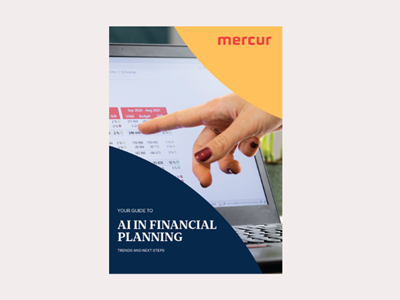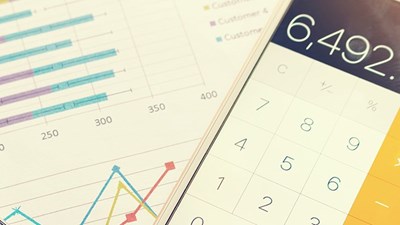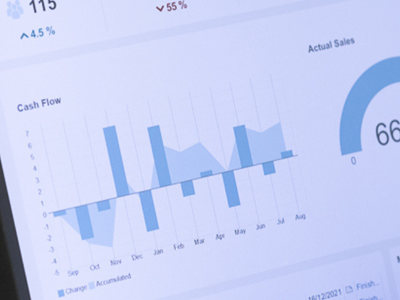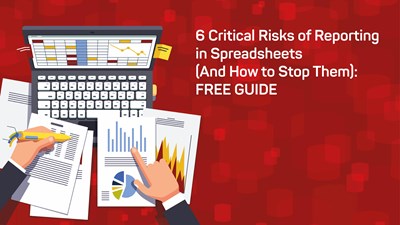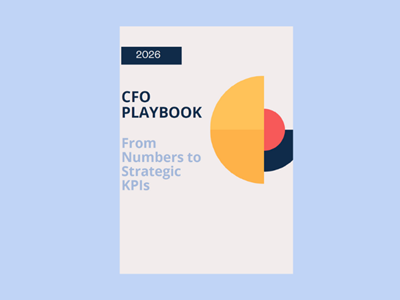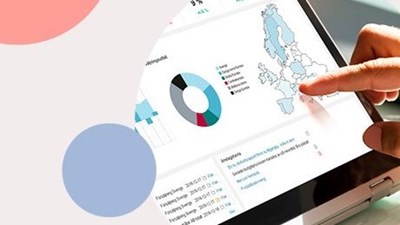.jpg?TS=638859264830150259)
Planning, Budgeting and Forecasting: What Every Business Needs to Know
Planning, budgeting and forecasting are rarely static. Shifts in the industry often require you to revisit assumptions, adjust targets and adopt new processes. Below, we provide a comprehensive guide on how to strengthen your approach and stay ahead of change.
What Is Planning, Budgeting and Forecasting?
Financial planning involves analysing past, present and future financial data to inform strategic decisions. This data relates to purchasing, production, sales and development, for which planning is done. Forecasting models can include sales, cash flow, budgets and revenue forecasts.
Budgeting involves planning a company's income and expenses for a specific period, typically on a quarterly or annual basis. This includes analysing available cash flows, determining operating costs and financing new initiatives. The allocation of resources and funds from the budget is done accordingly.
In finance, forecasting is the process of making predictions about future financial outcomes. It involves using historical data, market trends and other relevant information to estimate future revenues, expenses, cash flows, and other KPIs for financial success. These projections enable businesses to make informed decisions about resource allocation, strategic planning and risk management.
Why Does It Matter?
Regular and accurate financial planning can help your organisation in several ways. Forecasting helps analyse future costs and revenue trends that may affect the business, both in the short and long term. A company can use forecasts as a tool for planning, preparing for market changes and adapting to uncertain circumstances.
A realistic, well-constructed budget allows your business to consistently track where it stands financially. This insight represents current operating expenses, as well as the resources available to allocate to growth initiatives.
Overall, all these sections are important in the financial world because they:
Improve Financial Control: Helps track income and expenses, identify inefficiencies, and control costs effectively.
Enhance Decision-Making: Provides data-driven insights that support informed business decisions.
Increase Agility: Enables organisations to adapt to changes in market conditions or internal dynamics quickly.
Encourage Accountability: Departments and teams are held responsible for meeting targets and managing budgets.
Boost Investor and Stakeholder Confidence: Demonstrates a proactive approach to managing growth and risk.
For maximum financial efficiency, it is important that planning and budgeting are correlated. Budgeting sets the initial goal, while planning analyses sustainability and progress toward the goal.
Common Challenges in Planning, Budgeting, and Forecasting
Planning, budgeting, and forecasting in finance often face challenges related to data accuracy, collaboration and adapting to changing circumstances. These challenges can lead to inaccurate forecasts, missed targets and inefficient resource allocation. In practice, companies often face these risks from different departments.
The process of overcoming them can be more complex and challenging, but can be efficiently regulated by implementing planning tools for preparing and forecasting budgets. Common challenges companies face are:
Spending too much time collecting the data.
Coordinating the data accurately to create accurate plans and budgets.
Outdated or unreliable data sources.
Traditional budgeting processes can be inflexible and struggle to adapt to rapidly changing market conditions.
Lack of automation due to manual processes, like Excel, which can lead to errors.
Limited access to tools that can help in advanced planning and budgeting.
Although these challenges can be risky and hard to complete, companies can overcome them with a combination of the right tools, implementing automation and robust systems, improving collaboration and creating flexibility.
Implementing budgeting and forecasting CPM solutions helps organisations streamline financial processes, improve accuracy and align strategy with execution.
Plan, Budget and Forecast with These 8 Tips
Effective and strategic planning management is essential for driving business success and staying ahead of change. These 8 practical tips will help you streamline your processes, improve accuracy and make more informed decisions.
Keep Data Transparent
Being transparent and involving your organisation is crucial for alignment and success. Using dashboards to visualise data and performance is an effective way to keep everyone informed, enhance collaboration and centralise communication within a single solution.
Use Scenario Planning to Keep Up with Changes
Unexpected events can quickly disrupt your planning, forecasting and budgeting process. Scenario planning allows you to stay prepared by developing backup strategies for potential challenges. By monitoring performance in real time, you can adapt swiftly and keep your plans on track.
Automate with AI
AI can streamline your planning, budgeting, and forecasting process by reducing preparation time and enhancing accuracy. By analysing historical data and identifying trends over time, AI delivers objective insights that support smarter and stronger decision-making.
Implement Driver-based Planning
Driver-based planning allows you to concentrate on the key factors that truly impact business performance. By focusing on these core drivers instead of a detailed, line-by-line budget, you save time and gain a more strategic, flexible approach that is applicable across various functions and industries.
Use a Software Solution Like Mercur
By investing in a budgeting software solution, you will be able to plan, budget and forecast in one single solution. It’s easy to set goals, plan for future scenarios and collaborate across different departments or divisions. With real-time monitoring, you gain full visibility and control over your financial performance. Mercur Solutions offers a market-leading platform for planning, reporting, and analysis. Mercur Business Control is a comprehensive solution for corporate performance management and business intelligence.
Set Clear Goals and KPIs
Setting clear goals and KPIs is essential for aligning your efforts with your overall business strategy. Well-defined objectives and measurable indicators help track progress, evaluate performance, and drive accountability across the organisation.
Collaborate Across Departments
Collaborating across departments ensures that your financial strategy and forecasting processes are informed by diverse insights and aligned with the entire organisation’s needs. This cross-functional approach enhances accuracy, promotes transparency, and supports better, more unified decision-making.
Regularly Review and Update Plans
Regularly reviewing and updating plans is essential to maintaining alignment with current business conditions and objectives. It enables proactive adjustments based on performance data, market changes, or new opportunities, ensuring your strategy remains effective and responsive.
Plan, Budget, and Forecast with Mercur Business Control
Mercur Business Control provides a comprehensive and intuitive solution to unify your planning, budgeting and forecasting efforts. By integrating data, automating workflows, and offering real-time analytics, it helps eliminate inefficiencies and reduces manual effort.
With better visibility and collaboration across departments, your organisation can respond faster to change, align strategic goals and make data-driven decisions with confidence. Empower your finance team and business leaders to stay agile and drive performance with Mercur.
FAQs
How do you do budgeting and forecasting?
Budgeting involves setting financial targets based on expected revenues and expenses, while forecasting uses historical data and market trends to predict future performance.
What comes first, planning or budgeting?
Planning comes first, as it defines the strategic goals and direction of the organisation. Budgeting then translates those plans into specific financial targets and allocations.
What is the difference between planning and forecasting?
Planning involves making long-term goals and outlining the steps to achieve them, while forecasting predicts future outcomes based on current and historical data.
What is the first thing to consider when planning a budget?
The first thing to consider is your organisation’s strategic goals and priorities. These serve as a structure for allocating resources to meet operational and growth demands.
Contact us for more information on planning, budgeting and forecasting in Mercur:
 Blog
BlogHow to succeed with your planning, budgeting, and forecasting process
We know it can be challenging to succeed with your planning, budgeting, and forecasting process. Therefore, we have gathered our best tips for you to succeed!
 Blog
BlogBoost Report Readability, Engagement, and Decision-Making
In today’s fast-paced business environment, effective reports and dashboards are crucial for decision-making. Our user study using eye-tracking technology revealed seven key insights into what captures attention.
 Blog
BlogBuild Long-Range Planning for Business Success
Discover how effective long-range planning aligns strategy, finance and operations for smarter decisions and sustainable growth.
 Blog
BlogWhat Is FP&A? Definition, Purpose, and Best Practices
Without solid financial planning and analysis (FP&A), businesses operate in the dark. In this post we go deeper into the process of FP&A and why it’s important for businesses.
 Blog
BlogFive tips for a successful budget process!
How can you make your budget process more successful and maximise the effort that was invested in creating it? Of course, there are many factors to consider but we’ve chosen to highlight five key areas that will enable and help you create a smoother, value-creating and collaborative budget process.
 Blog
BlogScenario Planning - Better control during uncertain times
Uncertain times create the need for more frequent forecasts and time for analyzing and comparing different future scenarios. We give you 5 tips on how to simulate future scenarios using scenario planning
 Blog
BlogHow do finance teams track KPIs across the entire organisation?
Learn how finance teams track KPIs across the entire organisation by consolidating data from multiple sources into a unified system like Mercur.
 Blog
BlogWhy is our Excel-based budget always out of date?
Excel creates outdated budgets. Every time someone enters a figure, sends a file, or waits for another department to finish their section, your budget falls further behind reality.
 Blog
BlogCash Flow Forecasting
Inaccurate cash flow forecasting can be a costly mistake for companies. In today’s volatile market, relying on static annual budgets or manual spreadsheets leaves financial leaders without the agility to respond to uncertainty.
 Blog
BlogAI in Financial Planning: Trends and Next Steps
Discover how finance teams are using AI to drive smarter planning, faster insights, and stronger business decisions.
 Blog
BlogThe Hidden Cost of Data Silos
If you ever feel like your teams speak different languages when it comes to data, it is a classic symptom of data silos. The information gets stuck in one department, system or tool, making it difficult for anyone to see the full picture.
 Blog
BlogHow EPM Transforms Financial Planning and Forecasting
Struggling to keep plans aligned in a changing market? Discover how EPM helps finance teams move faster, stay accurate and lead with real-time insights.
 Blog
BlogBusiness Budgeting Software: How to Choose the Right One
Choosing budgeting software is partly a finance and partly a strategic decision. The right tool helps organisations organise planning cycles, adapt as the market changes and increase accountability across departments. But not every platform will be a good fit.
 Blog
BlogBusiness Intelligence Reporting For Finance Teams
The real challenge today isn’t collecting data, it’s making sense of it and fast. Organisations turn to business intelligence (BI) to convert raw data into insight.But how do you actually do it right?
 Blog
BlogFrom static budgets to agile financial management
Traditional budgeting has long been the cornerstone of financial planning in businesses. But today it can become more of a limitation than a strength. That’s where the concept of Beyond Budgeting comes in.
 Blog
BlogRolling Forecasts: Practical Steps, Benefits, and How to Get Started
Financial planning has changed. Traditional annual budgets can’t keep up with rapid shifts in the market, evolving customer needs, and internal performance dynamics. That’s why many finance teams are turning to a rolling forecast model.
 Blog
BlogBalancing Profitability and Sustainability
Sustainability has become a central concern for organisations across the world — and the UK is no exception. This evolving landscape places new demands on financial reporting.
 Blog
BlogSpreadsheets Risk the Future of the Business
Spreadsheets often start as just a list for storing information and there is minimal process documentation, support or maintenance for these worksheets. Despite the fact that desktop applications such as Microsoft Office are included in the standard configuration of users' PCs, very little formal training is ever given to spreadsheet users.
 Blog
BlogSpreadsheets are not Collaborative Tools
Spreadsheets were never designed for collaboration, yet they are the single most used program among teams and co-workers. They often start out as a quick document for storing, formatting or calculating information but evolve into important documents and are often the core records for an organisation.
 Blog
BlogHow to Effectively Budget with Driver-Based Forecasting
Traditional models of forecasting rely on historical data and beliefs. It uses techniques that identify patterns, which are simple to use. However, with these methods, there are some challenges because they are not dynamic with today’s market, and can’t effectively analyse complex data.
 Blog
BlogBudgeting in a modern world
Thirty years after its debut, Microsoft Excel is still the preferred tool for budgeting and planning projects. However, its popularity is declining, due in most part to the rise of technology and subscription-based pricing for a myriad of SaaS-based products.
 Blog
BlogAI in Finance as a Powerful Tool
In this post, we explore how AI is evolving from a theoretical concept into a valuable resource for decision-making. Get useful insights for finance teams at any stage, from early exploration to actively using AI-powered solutions.
 Blog
BlogMastering Spreadsheets
Where many businesses start small, a simple spreadsheet can adequately perform the limited tasks required of it. As the company grows, your spreadsheets can get more complex and harder to manage, by which point it feels like it will be too difficult to move to a different reporting tool.
 Blog
Blog3‑Statement Model for Better Financial Forecasting
Financial forecasting is critical for any business that wants to adapt to change. But finance teams keep usingfragmented models and manual processes. The 3-statement financial model is the solution.
 Blog
BlogTop 7 Manager KPIs for Financial and Operational Success
In today's post we'll break down why KPIs matter, which ones offer the most insight for finance and executive teams and how to ensure they're actually driving results.
 Blog
BlogAI and Machine Learning, what is it, and why is it important for the future?
Artificial Intelligence and Machine Learning, what is it, and what is the difference?
 Blog
BlogFP&A Trends Shaping Financial Planning in 2025
Many organisations cope with fragmented planning and data quality issues, which slow down their forecasting cycles. This forces organisations to take practical steps to turn ambition into execution.
 Blog
BlogThe Powerhouse of EPM Tools
A business’s success heavily relies on having a strong strategy. However, what's even more important is implementing that strategy while tracking and measuring the performance. This can easily be done by investing in enterprise performance management (EPM) software.
 Blog
BlogTop-Down vs Bottom-Up Budgeting
Budgeting aligns resources with strategic goals, and there are two primary approaches: top-down and bottom-up. Which method wroks best?
 Blog
BlogAI in corporate budgeting
Artificial Intelligence (AI) can support decision making in key areas such as budgeting, capital allocation and even corporate strategy and as a result, it is increasingly being deployed in corporate performance management tools (CPM).
 Blog
BlogThe Collaborative, Smarter Budget
In many organisations manual budgeting processes over-burden staff and create masses of data which overwhelms department heads and stops them seeing the bigger picture.
 Blog
BlogBetter Revenue Planning
Sales forecasting is the process of predicting future revenue based on past data and trends. Read the blog to learn the best methods to do it right.
 Blog
BlogZero-Based vs. Incremental Budgeting
Budgeting sits at the heart of sound financial management. This is why choosing the right technique is crucial for CFOs – it shapes resource allocation, cost control and strategic agility. Incremental and zero-based budgeting are two leading methods that offer distinct approaches.
 Blog
BlogCFO Playbook - KPIs for 2026
The role of the CFO is changing fast. Today, the finance function is expected to deliver more than reports — it must drive direction, speed and profitability through clear, actionable KPIs. Learn more in this guide.
 Blog
BlogTop PowerBI Alternatives in 2025
Explore the top PowerBI alternatives for 2025. Discover how Mercur delivers integrated planning, budgeting and reporting without the high cost and complexity.
 Blog
BlogManagement Reporting Guide: Definition and Tips
Management reporting helps you see what’s really happening in your business. In this guide, we’ll explain what managerial reporting looks like and share practical tips.
 Blog
BlogInformed Business Decisions at Maximum Velocity
The ability to process information swiftly is essential. If your business can’t manage your data efficiently, your company’s financial performance will surely underperform. At Mercur we have developed our own database Veloxic which helps Financial Planning and Analysis.
 Blog
BlogWhat is Corporate Performance Management? (CPM)
CPM, or Corporate Performance Management, is a process within corporate management aimed at measuring and optimizing the performance of an organization. CPM encompasses a range of activities, including budgeting, planning, forecasting, reporting, and analysis.
 Blog
BlogA practcial guide to scenario planning
Scenario planning gives you a clear, practical way to test assumptions, spot risks and opportunities, and make better strategic choices so your organisation stays resilient when conditions change.
 Blog
BlogWhat is management reporting?
Management Reporting refers to the process of creating, analyzing, and presenting information about various aspects of an organization's performance to enable decision-makers to make well-informed decisions about the future.
 Blog
BlogSave time and create a successful budget process
If you’re working in a large organization, you’re probably aware of how time-consuming the budget process can be. In this article we’ll give you tips on how to save time and still create a successful budget process
 Blog
BlogVariance Analysis: A Comprehensive Guide
Senior executives are demanding more detail in their management reports. The amount of data available to finance departments has exploded and decision makers see this as an opportunity to get more insight into how the business is performing.
 Blog
BlogWhy xP&A is a powerful game-changer
The newest iteration of planning, analysis and reporting systems is a powerful game-changer that unites company departments and boosts competitiveness. It’s called xP&A – the abbreviation of extended financial planning and analysis.
 Blog
BlogHow to get accurate financial reports without waiting for month-end
You don't need to wait until month-end to see accurate financial reports. With modern financial systems you can access up-to-date reports whenever you need them.
 Blog
BlogHow To Create a Successful Budgeting Process
When done well, budgeting helps organisations stay financially on course, even when things don’t go exactly as planned. Learn how to keep things on track so you avoid surprises and stay focused on your goals.
 Blog
BlogHow Automated Reporting Will Transform FP&A in 2026
This article highlights the power of report automation, how to implement it in your business and explores any new opportunities for accurate financial analysis in the long run.
 Blog
BlogHow can AI help CFOs make better decisions?
Artificial Intelligence (AI) has significant potential to enhance decision-making for Chief Financial Officers (CFOs) by providing data-driven insights, automating routine tasks, and enabling more accurate forecasts.
 Blog
BlogSpreadsheet Risk Management: Best Practices for 2025
Excel has long been a target for hackers; just one click on a malicious attachment can infect your entire network. So, how can you keep using spreadsheets while not sacrificing your safety?
 Blog
BlogRisks with working in spreadsheets
Spreadsheets are an essential tool for all types of organisations and businesses rely on them heavily, particularly for financial computations. The most popular spreadsheet program globally is, of course, Microsoft Excel, it’s used by an estimated 750 million people.
 Blog
BlogThe Role of the CFO: Top Priorities and Responsibilities
Today's finance leaders steer more than just budgets and reports. The digital transformation ramps up with the increase of corporate complexity, and so does the role of CFOs.
 Blog
BlogThe Business Benefits of Integrated Business Planning
This blog explores what IBP is and the typical IBP process. We highlight business benefits and how the right software can be a game-changer for your organisation.
 Blog
BlogBest Guide to Improve Your Revenue with Flexible Budgeting
Optimise your expenses with flexible budgeting, and learn how to adjust budget to reflect current business activities, market changes and cost fluctuations.


